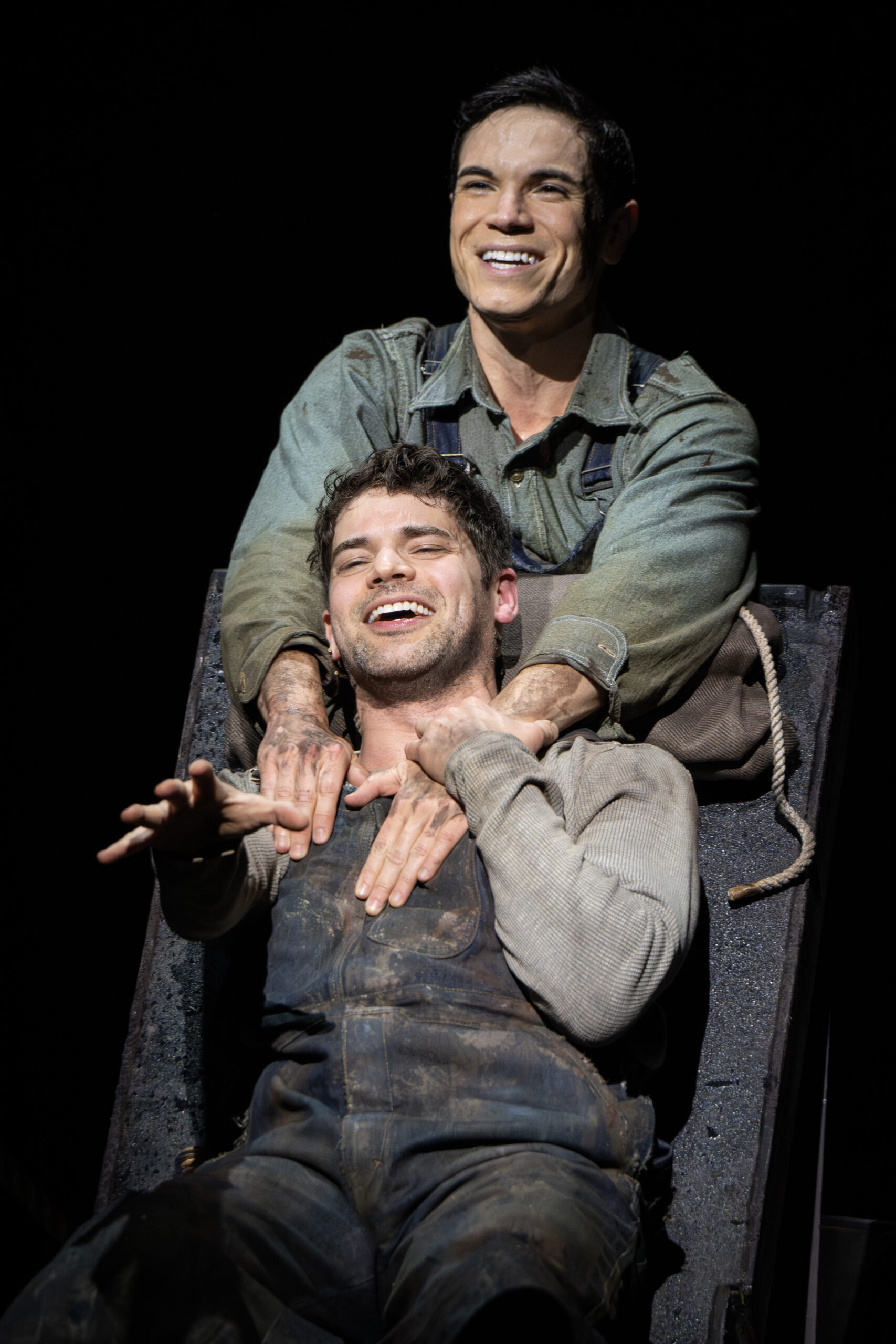NEW YORK — The musical Floyd Collins, with music and lyrics by Adam Guettel, additional lyrics, book, and direction by Tina Landau, originally debuted off-broadway in 1996 and is now enjoying a Broadway revival at the Vivian Beaumont Theater at Lincoln Center starring Jeremy Jordan in the title role. The story follows real-life Floyd Collins, a cave explorer who died 100 years ago in 1925, and whose situation sparked a media frenzy, His cave discovery is now part of the Mammoth Cave National Park System in Kentucky.

Having seen the rarely produced Floyd Collins last year at my alma mater, Utah State University, I made it a personal goal of mine to see it on Broadway as soon as I was made aware that this revival was in process. With Landau having one of her earliest shows revived on Broadway at the same time as one of her newest (Redwood), I was thrilled to spend a weekend in Manhattan seeing what her directorial and writing skills have brought to the theatrical realm over the last 29 years, and how that has changed and developed.
Entering the theater, the stage is surprisingly bare. The scenic design by dots, a multi-disciplinary design creative made up of Santiago Orjuela-Laverde, Andrew Moerdyk, and Kimie Nishikawa, starts out small and creates a fascinating palette that goes from a cave to an excavation sight to a full carnival. Seeing the blank slate come alive with each scene was thrilling. From the first song that Floyd sings, “The Call”, the way the set moves up from the ground and makes it look like Jordan is actually moving through a cave in the theater, with innovative lighting from Scott Zielinski and projections by Ruey Horng Sun, each scene was built with such attention to detail that I was astounded by the simplicity yet intricate storytelling
Jordan in the title role was a masterclass in acting. Watching him go from a plucky youthful explorer to a young man accepting his fate in death was remarkable. First of all, I am reluctant to believe this man is only 6 years younger than me, because the way he moves around this stage makes him look like he is still in his Jack Kelly days. Seeing the character move through the emotions in song, from the joy and fun in the beginning, to the hope from being found by his brother, Homer, played by Jason Gotay, to the intriguing spiritual connection to his sister Nellie played by Lizzie McAlpine, to the last and final acceptance of the end, it really is no wonder Jordan is nominated for a Tony for this performance. His stunning performance of the song “How Glory Goes” at the end of the show had me needing to remind myself to breathe.
The rest of the cast also added to the strong performance of this tragic story, as did the impeccable directing of Landau, and the haunting music of Guettel. The music has the distinct bluegrass feel that is essential when telling a story of the Kentucky backwoods, and while admittedly it is not the type of music you would catch me listening to in my freetime, it fits perfectly with the story that is being told. It builds with the culture of the place, especially the yodel-type cave calling. Growing up near mountains, having lived and explored in many National Parks, and even swam in a river in a deep cave, the yodel-singing that Guettell includes in his music was such a magical connection to the beautiful space of nature.

As the ensemble portrayed the spectacle of media frenzy, and the challenge of trying to rescue Floyd, the story got more compelling, dark, and connecting. The opening number of Act Two, “Is That Remarkable?” was such a timely piece. The reporters, the direction, and the way that a story can be spun was such an eerie reminder of how we often look at a story as the truth, when we may only have a bit of the information. Taylor Trench plays Skeets Miller, a reporter who not only goes on in real life to win a Pulitzer Prize for his coverage of the situation, but makes a strong connection with Floyd during the attempted rescue. Trench, also nominated for a Tony in this role, exhibits such a sense of humanity in storytelling that he exudes the line from Shakespeare’s Tempest that has guided me in both my writing and my therapeutic practice “I long to hear the story of your life.” I had no doubts that Trench’s character just wanted to know and help Collins.
As part of the nonprofit theatre at Lincoln Center, Floyd Collins is a limited run. It is not looking for the commercial success of many of the other shows on Broadway, and is able to dig into more of the art and deep storytelling that I love about theatre. As someone who also loves the nature and history that have brought our nation the National Parks, I love that Landau, Guettell, and the team have taken the time to honor Mr. Collins and the sacrifice that he made to bring us access to the natural wonder that is the cave he explored. It is a shame that this story is not more widely known or told. Perhaps with this revival and Jordan’s popularity, renewed interest will open up so more schools like my own alma mater will consider exploring the territory after this revival is closed. 
[box]Floyd Collins plays Tuesdays-Sundays until June 22nd 2025 at 7pm or 8pm, with 2pm or 3pm matinees depending on the day at the Vivian Beaumont Theater at Lincoln Center (150 W 65th Street New York, New York, 10023). Tickets range from $59-299. For more information see https://floydcollinsbroadway.com/[/box]
